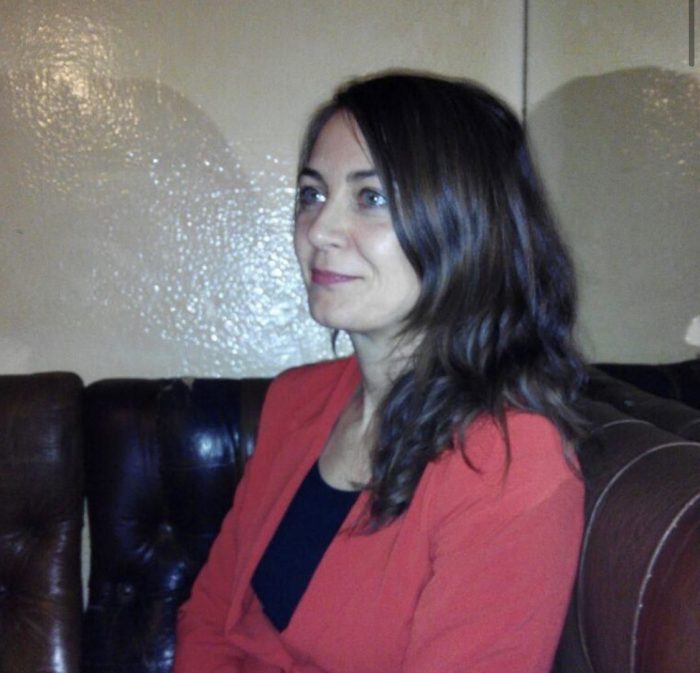Drunk in Vienna.
The young woman in the picture is me, wasted on the evening of the last time I gave a “proper” academic paper—the opening lecture, no less, of a conference on the philosophy of the future, about Nietzsche’s Artist Metaphysics. You can read it here.
After I had delivered my talk—in English—an angry young man got up and challenged me, in German, about leaving out some things that, had I quoted them, would have shown Nietzsche’s anti-Semitism according to him. A cheap shot, and nothing to do with what I had been speaking about, but he had basically mansplained to me why my paper sucked!
Running a high temperature at the time, I found myself sweating and shaking like a deer in the headlights, unable to coolly counter him by exposing his “argument” for what it was: a transparent “Auslassungsvorwurf.” Anyone who’s read the collected works of Nietzsche as I have (it took me around seven years) will know that it is impossible to quote everything relevant to any given topic in the context of a 30-minute paper.
After the ensuing painful silence (you could hear an actual pin drop), there followed a discussion amongst mostly male people that the conference syllabus identified as “philosophers” that completely eluded and excluded me. I felt trapped in the spotlight on the stage.
As the “experts” continued to talk, I got up and, in a dream-like scene perfect for a David Lynch feature, walked through the participants to my place and sat down again, red-faced and dumbfounded.
Why had the young man been so utterly hostile?
I took my heart in my hands—or maybe just all my masochism—and confronted him after the session. I explained that I had been away from academia for years but that my heart was still in it, and I was now making money for our family in an ad agency while also taking care of my young daughter. That I loved Nietzsche, who I’d written my PhD thesis on, and had carved out time at night and in the early mornings to write this paper—which the organizer had invited me to deliver as the introductory talk.
And there it was:
“That talk should have been given by me,” the young man from Austria fumed, “and not by some German housewife!”
He spat that last word, and walked away.
In one fell swoop, he had confirmed what I secretly thought about myself at the time, after years under narcissistic, old-school alpha male bosses, first, at uni, then, in advertising.
I made my way to a café near the conference, and as I sat alone at my table, tears started to silently roll down my face.
Then, out of nowhere, a kind voice asked: “Are you okay?” I looked up and saw a fiercely beautiful face framed by a tank-girl mohawk.
Now openly and loudly crying because a kindness like that when you’re hurting will do that to you, I sobbed: “Noo-ooooh…”
The stranger actually hugged me and then sat with me. We ended up talking and she revealed that she had been at the conference, knew the guy who had belittled me, and that he wasn’t exactly popular with her.
I ended up going for Vietnamese food with her, an aspiring half-Japanese filmmaker with a famous Nietzsche professor for a father, and her bar manager boyfriend, and they gave me a small tour of cool Vienna pubs. My stomach was revolting due to sickness and stress, but meeting and connecting with these kind souls meant everything in that moment.
Gin helped! Especially in that one place that had, like, 97 varieties. More healing hugs, laughter, discussions of films and books, and numerous medicinal cocktails ensued. Artists philosophized, and I felt right at home.
Later, however, back alone in my hotel, I was frantically replaying the conference events over and over in my mind, and also to some unlucky friends via text messages. (Sorry, Emer and Hans!) Feverish and sleep-deprived, I made my way to the airport the next day.
After a few weeks back at the desk of the ad agency, I got an email from the organizing professor, another philosopher by title: “Your paper was fine. But in the discussion that followed it became clear you are no longer at home in the academic world.”
It hurt like hell to read that…and it took me a while to realize he was right.
That conference was seven years ago today. That year, 2015, became the year I finally became my own boss. It’s not always easy, but nothing is more liberating and intoxicating than the knowledge that I don’t have to make myself small to avoid threatening men anymore.
It still takes courage to bring the amount of visibility you need as a business owner, but:
Telling your truth is essential for finding your people. You do not need to be liked by everyone!
And calling out sick systems—like large parts of academia and the old-school, Mad Men world of advertising—is needed if we want change in the world, and specifically with empathy becoming more valuable. A cognition of the heart, if you will.
It took time and tons of therapy, but these days, I can translate attacks like those for what they are: attempts to make me look small by people who feel, in actuality, threatened by me.
If you’re a young female who gets mobbed by men in any way, or one who endures a chauvinistic boss—and they exist, even after #metoo—know that you are enough. You are free. You are better than them because you are the future.
You are one of the teacher-healer-fighter-writer-mother-lovers who do no harm, but take no sh*t, one who humanity requires more of to survive. They know this and that is why they hate and fear you. So get up and roar, lady lioness!
Become who you are: powerful beyond measure.
PS: That whole conference revolved around Nietzsche’s “Artistenmetaphysik,” the discussions focusing on “the philosopher as artist.” Too bad that he was referring, in the original German, to the “Zirkusartist,” the tightrope walker above the abyss—not the artist. But that probably got lost in translation.












Read 1 comment and reply